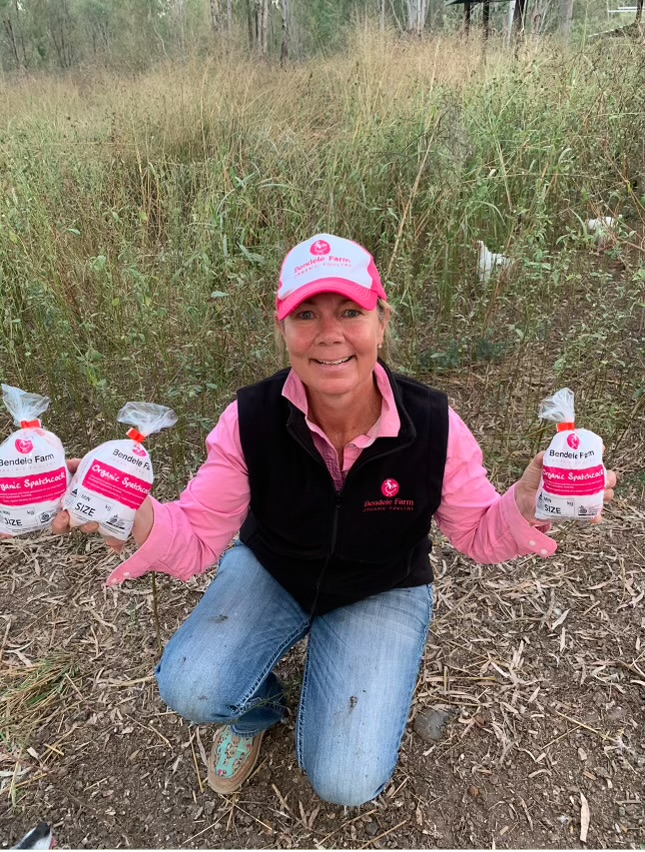Farmers say Closing the Loophole Bill puts them at risk
Kristin Murdock
12 February 2024, 2:40 AM
 The expansion of right of entry powers on farm is a concern many industry stakeholders hold about the Closing the Loopholes Bill.
The expansion of right of entry powers on farm is a concern many industry stakeholders hold about the Closing the Loopholes Bill. "Farmers will have to deal with legislation fraught with problems" - that is the take the National Farmer's Federation have on the "Closing the Loopholes Bill" as the government allowed industrial relations reforms through last week.
In a nutshell, the bill grants unions more right to enter workplaces including farms. While this has prompted a negative viewpoint from many industry stakeholders, the bill also proposes to strengthen protection for employees who have been, or are being, subjected to family and domestic violence from discrimination in the workplace as well as ensure wage equity.
NFF Chief Executive Tony Mahar argued that the suite of measures would deliver more uncertainty for farmers, more power for union bosses, and a less dynamic economy for workers.
“The Government’s form in scrabbling together last-minute backroom deals without proper debate and scrutiny just paves the way for poor legislation,” Mr Mahar said. “We were already worried about how rushed this legislation is and farmers’ concerns simply haven’t been listened to.”
Leader of the Nationals, David Littleproud said the fact the bill lets unions enter farms unannounced is "mind boggling" and defies common sense.
“The farm is often the family home for many Australians. This is about safety and privacy, as well as animal welfare and biosecurity risk," he said.
It's the biosecurity risk and intrusion of privacy which are the biggest causes of concern for opponents of the Closing the Loopholes Bill.
“Any unintended consequences leading to an outbreak of a disease will cause lower food supply and higher food prices – this is the last thing Australian families need in the middle of a cost-of-living crisis," Mr Littleproud said.
The NFF's Tony Mahar is right behind the Nationals leader.
“The expansion of right of entry powers is a straight-up union power grab. There’s no reason to grant them more power to traipse onto farms unannounced. These are people’s homes and there are important safety and biosecurity considerations," Mr Mahar said. “Farming is incredibly unique in terms of the seasonal volatility, remoteness and prevalence of family-run operations that impact our workforce needs. It’s important policymakers hear directly from farmers before upending established Industrial Relations rules.”
Mr Mahar also pointed to changes to the definition of casual employment, saying it would disincentivise job creation in the farm sector.
“The current system is clear and balanced. Everyone knows what they’re signing up for and whether an arrangement is casual or permanent. Take that clarity away and it’s one more thing that will discourage a farmer from creating a new role. This bill is all about old-fashioned rigidity that’s out of step with a modern, dynamic economy. It ensures that the union bosses rule the roost, and it makes Australia a tougher place to create a job. None of that benefits Australians in the long run,” Mr Mahar said.
Proponents of the bill say it will strengthen workers rights and protect from wage tampering, discrimination and fraud.

Farmer, Sarah Sterns said she biosecurity risks on her organic poultry farm are a big concern. IMAGE SUPPLIED
Western Plains App spoke to a Narromine farmer (who did not wish to be named). He agreed worker's rights are important but a farm is more than a business place, it is a home, and the potential invasion of privacy, as well as biosecurity risk are big issues.
Organic poultry farmer Sarah Sterns, who has 6000 chickens on her Kilkivan-based farm, said her smaller, family farm was very much also a private property.
“We live and work on the same premise so that would be a huge risk to our privacy,” Ms Sterns said. “I am not comfortable with the idea at all. Because we are organic and free range, we cannot afford to have people on our farm, who are unfamiliar with the risk of viruses spreading.
“Being organic, we can’t use antibiotics or drugs so it would have an enormous impact if that happened, it would wipe out the farm.”



